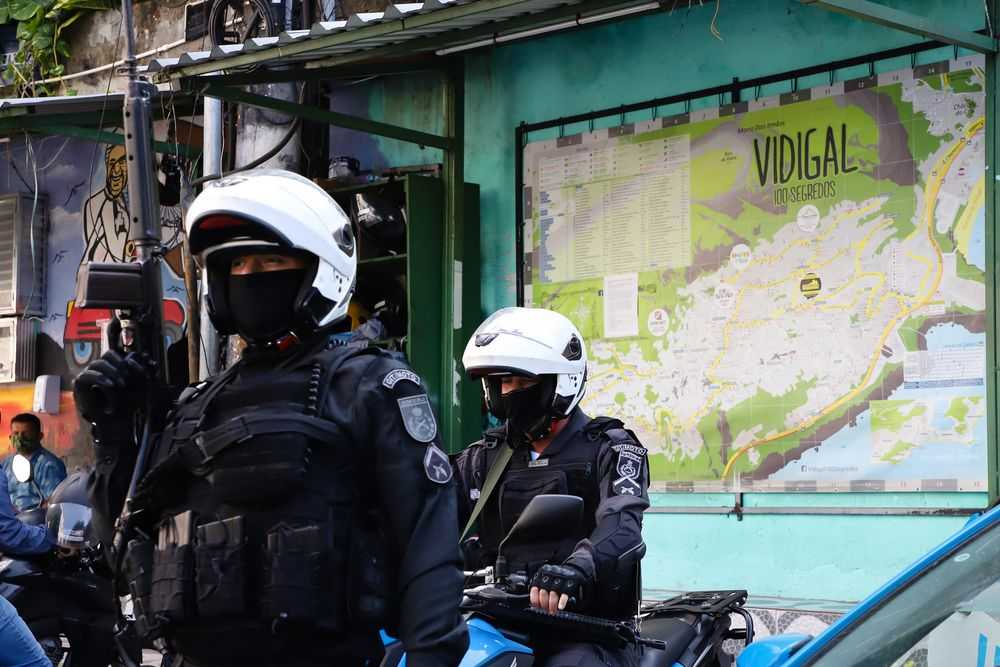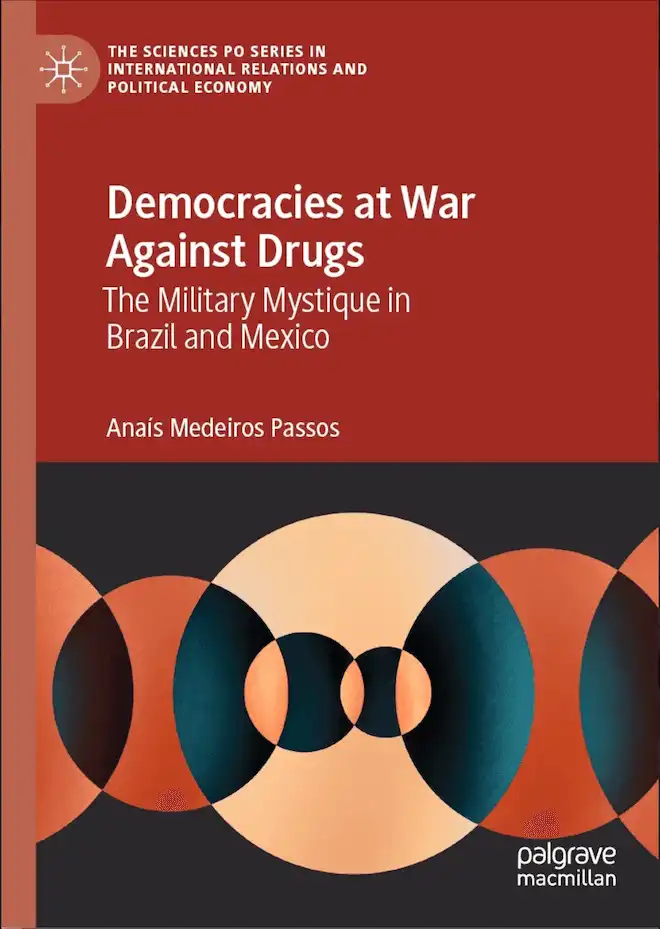Home>The Military and the Fight Against Drug Trafficking in Brazil and Mexico.

12.09.2022
The Military and the Fight Against Drug Trafficking in Brazil and Mexico.
Interview with Anaís Medeiros Passos
In her recently published book, Democracies at War Against Drugs. The Military Mystique in Brazil and Mexico (Palgrave Macmillan, September 2022), Anais Medeiros Passos provides an in-depth account of military operations against drug gangs and organisations in two of the biggest countries in Latin America: Brazil and Mexico. This work, based on Anaís’s PhD defended at Sciences Po in 2018, offers an empirical and theoretical examination of the issue of the role of the military on national soil. The book is also the first work to look at high-level negotiations between military and civilian elites that define the conditions for the use of force during military operations. The author answers our questions.
As a justification for the deployment of military forces in the fight against drug trafficking, you write that military forces are portrayed as the most prepared body to counter drug trafficking groups—unlike the “corruption-plagued” police bodies. Can you explain why military forces benefit from such a positive image—what you call a “mystique”—in the two countries you examine in your work, i.e Brazil and Mexico?
The military mystique is a set of beliefs about the armed forces that sustain the decision to deploy the military in many arenas of public policy, including security: a higher morale, efficiency, and immunity to corruption. In interviews, politicians and businessmen that press for using the military to combat crime justify their choice by emphasising that the military is unlikely to be corrupted—which contradicts cases such as that involving General Jesús Gutiérrez Rebollo in Mexico and scandals such as that around the Brazilian Ministry of Defense spendings in 2022.(1) This mystique, however, justifies many privileges for the armed forces: exemption from civilian oversight, a broad military jurisdiction, and special remuneration and retirement plans. It basically allows the military to say: “we are better than civilians, you can trust us”. And people do.
Despite this positive image of military efficiency, you demonstrate that military operations have a limited effect on controlling crime in the medium and long term. Who, then, benefits from such policies, and what are the unexpected consequences?

Both political leaders and the military high hierarchy benefit. The issue of violence is a very attractive one in Latin America, and politicians who employ violence are usually supported merely for the act of doing something. A common enemy (drug trafficking, organised crime) works to divert our attention from what really needs to be done: reforming the prison system and investing in and equipping the police. However, it is more appealing to put tanks in the streets than to spend months inside offices discussing how to coordinate the public security system. There are many electoral and political interests at stake. A governor or a president can gain popular support, ensure governability, or be reelected by announcing a « war on crime ». For the Brazilian armed forces, fighting drug gangs is not a preferred mission, but it gives them money, visibility, and autonomy. By being deployed in security, the military can bargain for a better position in politics. That’s why the former chief of the federal intervention in Rio de Janeiro is now vice presidential candidate in this year’s election.
The war on drugs entails many negative consequences, including violations of rights as well as other abuses (the case of Mexico during Calderón's presidency is symptomatic of this) and corruption of officers and soldiers. I examine this issue at length in the last chapter of this book.
Have police/military relationships changed as a result of the military intervening in drug combating affairs?
My research shows that military officers want to define the rules of the game when they are fighting drug gangs and organisations. So these operations often grant the military more autonomy and power in decisions involving public security policies, to the detriment of police forces. The militarisation of security also entails a logic of competition between police and military bodies, which can reinforce suspicion and distrust between security providers. So, while corruption inside the police is the reason why the military is called in in the first place, it also justifies an expansion of military power.
What methodology did you follow for your research? Did you conduct interviews with military, police, and political leaders? Did you encounter specific difficulties?
I did fieldwork in Rio de Janeiro, Ciudad de Mexico, and Tijuana during nine months (divided into two stays) where I conducted more than a hundred interviews with people who were closely connected to counter-drug operations, including army generals and colonels, former ministers of defence, deputies, and police chiefs. Also, I met with many people working in human rights organisations to understand how citizens living in these cities’ urban slums are affected by these operations.
There were many challenges in doing the research, including interviewing people in the armed forces, since it was my first time interviewing them. The armed forces are a hermetic institution but I was lucky to find many people willing to give their view of the facts in Brazil and Mexico. Also, there was the issue of gunshots and armed actors depending on where I conducted interviews (which is very revealing about the nature of the subject I decided to study). I used protocols of security to minimise risks for those that accepted being part of the research as well as myself during the research.
Interview by Miriam Perier, CERI.
Notes
- 1.See https://www.correiobraziliense.com.br/politica/2021/02/4905850-dinheiro-publico-banca-picanha-e-cerveja-para-militares.html.
Cover image caption: Military Police Rio ITV MedeirosPassos (credits: Andre_MA for Shutterstock)
Follow us
Contact us
Media Contact
Coralie Meyer
Phone : +33 (0)1 58 71 70 85
coralie.meyer@sciencespo.fr
Corinne Deloy
Phone : +33 (0)1 58 71 70 68
corinne.deloy@sciencespo.fr
